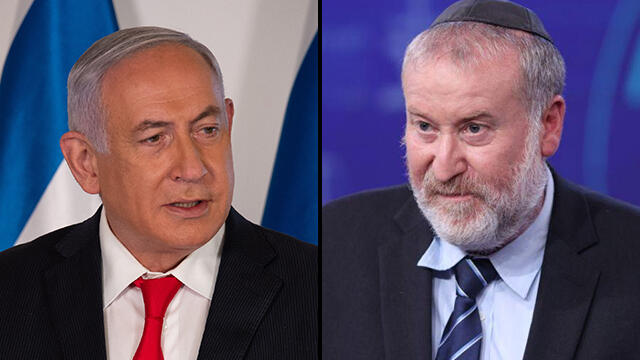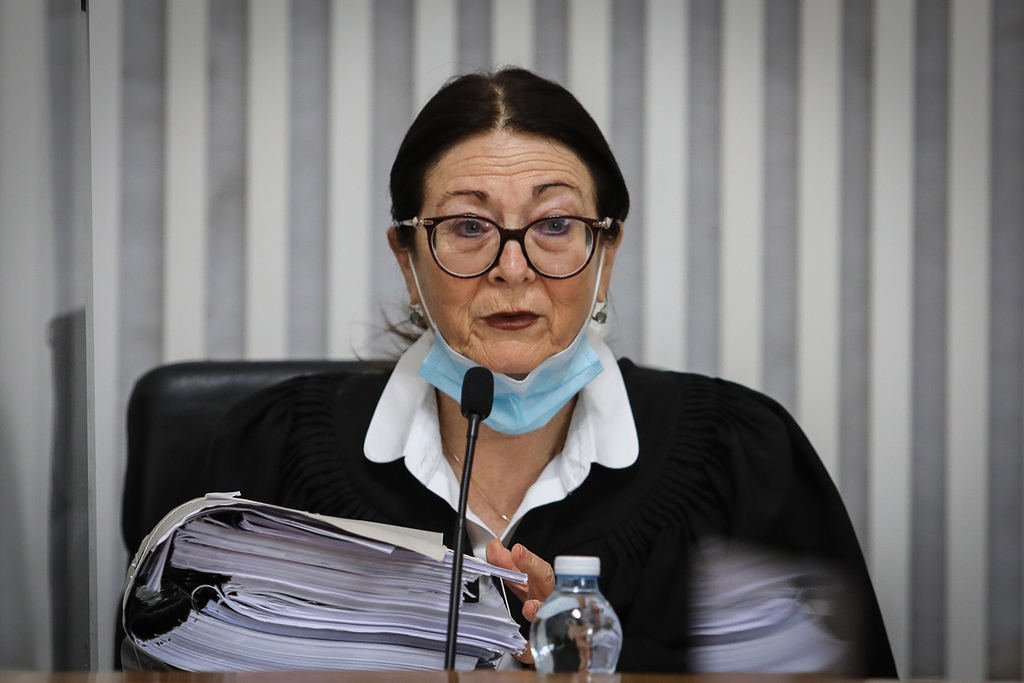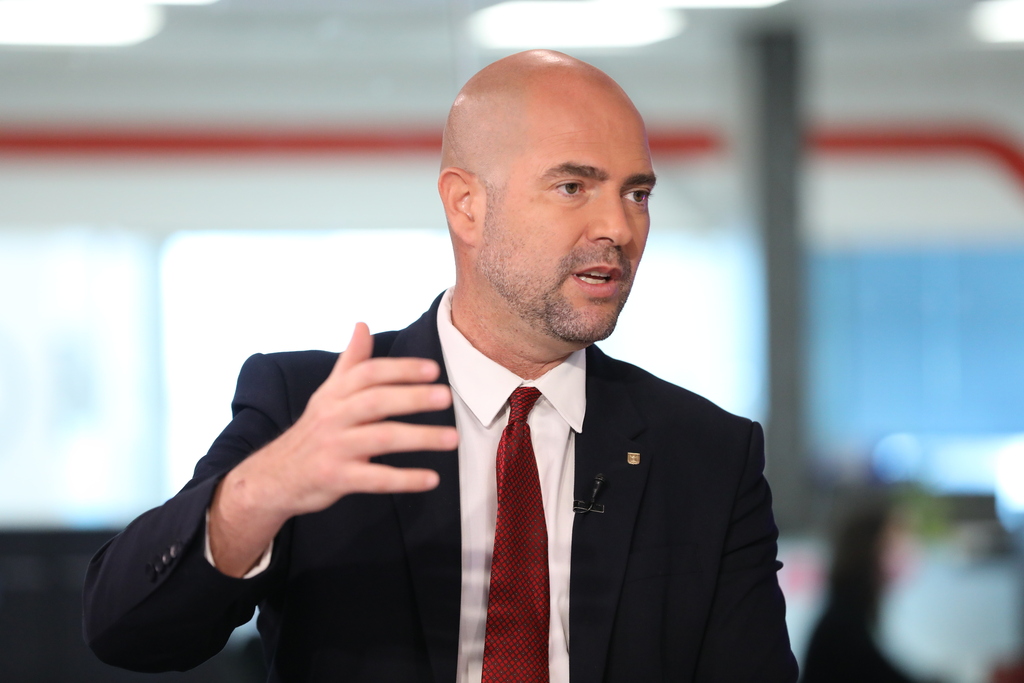The High Court of Justice ruled Thursday that Prime Minister Benjamin Netanyahu is bound by a conflict of interest agreement drafted by Attorney General Avichai Mandelblit.
Netanyahu is currently on trial on three corruption cases after being charged with fraud, breach of trust and accepting bribes. He denies any wrongdoing.
3 View gallery


Prime Minister Benjamin Netanyahu and Attorney General Avichai Mandelblit
(Photo: Moti Kimchi, Yoav Dudkevitch)
In the final ruling, Chief Justice Esther Hayut questioned the sincerity of Netanyahu's claim that he did not protest Mandelblit's involvement in premier's other affairs in the past, such as the establishment of the unity government co-headed by Likud and Blue & White.
"The prime minister's counsels argue that his previous commitments focused on his willingness to make a conflict of interest settlement, and that he did not express any position regarding the attorney general's authority to make it or regarding the status of his opinion in this regard," said the judges in their ruling.
"This claim ignores previous conflict of interest arrangements made for the prime minister and completely contradicts the position presented on behalf of the prime minister himself in other proceedings regarding the binding status of the attorney general's opinion.
"The prime minister's conduct raises questions regarding the sincerity of the statements on his behalf before the court regarding the formation of the government, which did not include any reservations regarding the involvement of the attorney general in the process of formulating a conflict of interest agreement."
The attorney general's final legal opinion raises five issues, the most significant of which is a ban prohibiting the premier from making judicial appointments, including the police commissioner and state prosecutor.
Netanyahu is now banned from making decisions concerning appointments of high-ranking officials in the law enforcement system, decisions concerning the appointment of Supreme Court justices and Jerusalem District judges and making decisions concerning witnesses or other defendants in his case.
The premier is also prohibited from interfering with the work of the Communications Ministry, at least in a way that could impact his case, and from being involved in legislation that may have an impact on the criminal proceedings.
The agreement allows Mandelblit to defend Netanyahu in the High Court against petitions demanding he abdicates the premiership.
However, the court rejected the contention of the petitioner, the Movement for Quality Government group, that the restrictions should also be imposed on Netanyahu’s surrogate, Public Security Minister Amir Ohana, noting that a conflict of interest agreement is a personal arrangement made for a specific person — in this case, the prime minister.
Rejecting Mandelblit's authority, Netanyahu sought to implement a different agreement he himself devised, asserting that the attorney general's outline "subverts the will of voters."



